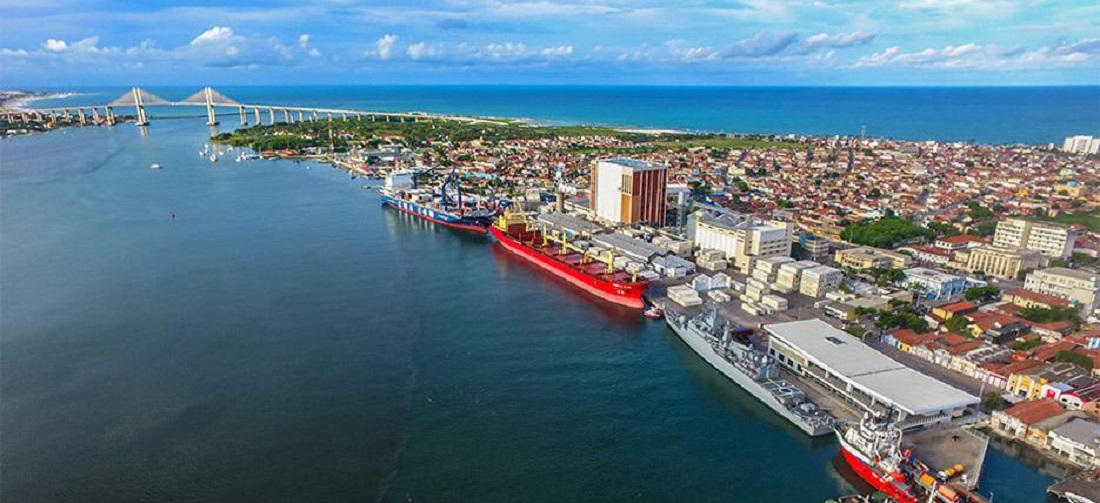
RN fruit producers want to protect cargo
Dec, 01, 2021 Posted by Ruth HollardWeek 202146
The recent drug seizures made in the Port of Natal have been worrying fruit producers in Rio Grande do Norte (RN), according to Fábio Queiroga, president of COEX/RN (the fruiticulture executive committee). In all, in 2021, actions by the police and the federal revenue service interrupted the shipment of 2.4 tons of cocaine on ships bound for Europe. Fábio Queiroga says that the trend is for companies to have their own vehicles to avoid possible contamination of cargo and not depend on outsourced carriers.
According to COEX, companies take a series of measures to curb the action of drug dealers. “We placed cameras to monitor the loading process to prove that it is reputable at the origin, on the farm. We put seals to prevent cloning”, he comments.
The onslaughts of international traffickers end up harming the image of the fruit production and export sector on the market, according to Queiroga.
Factors such as the privileged location and the leading role of Rio Grande do Norte in fruit exports turned the Natal port terminal into a departure point for international drug trafficking, according to police investigations. The state is responsible for 40% of the fruits that are sent abroad and for 2022, the expectation is that the sector will move R$ 1 billion.
See below the main goods exported via the Port of Natal in 2021. Data are from DataLiner
Top Eight Products Exported via the Port of Natal | Jan to Oct 2021 | WTMT
Source: DataLiner (click here to request a demo)
International gang has been using the Port of Natal
For nearly three years, the Port of Natal has been used to transport drugs to Europe by one or more criminal groups. Part or all of this activity is led by the “Pablo Escobar Brasileiro”, as Sérgio Roberto Carvalho is known, one of the biggest drug traffickers in the world, according to police.
Investigations show that he runs a large drug scheme in the ports of Brazil, including Natal, to transport drugs to Europe. Justice estimates that Major Carvalho exported 45 tons of cocaine, which results in R$ 2 billion worth of drugs.
The main method used by criminals is Rip On/Rip Off, which consists of breaking the container seal, inserting the drug (Rip On), and placing another seal, without the knowledge of the exporter or importer of the legal cargo. Upon unloading at the destination, there is a reverse movement and the container is reopened to remove the drug (Rip Off).
As the Port of Natal exports only fruit and fish, the drug is hidden in refrigerated cargo
The fiscal auditor Maurício Santos points out that the location of the port and Natal’s proximity to Europe are factors that explain the capital being on the trafficking route. “Natal is the last port before the ship goes to Europe. The ship spends little time here, an average of three days”, he adds.
Until October of last year, the Port of Natal also operated without a container scanner, a situation that only changed after a company operating at the site paid for the installation of the equipment.
Source: Tribuna do Norte
To read the complete original article, access the link: http://www.tribunadonorte.com.br/noticia/producers-de-frutas-do-rn-querem-proteger-cargas/526601
-
Trade Regulations
Jan, 09, 2023
0
China hints at fast-approaching FTA with Mercosur
-
Economy
Jan, 18, 2023
0
Latin American exports lose momentum in 2022 and 2023, report by IDB Bank
-
Grains
Mar, 18, 2020
0
Consultancy forecasts 7% drop in world agro exports in 2020 due to coronavirus
-
OTI Rankings
Aug, 14, 2023
0
OTI Ranking | DataLiner | Jan-Jun 2023 vs. Jan-Jun 2022 | Brazil and Plate


